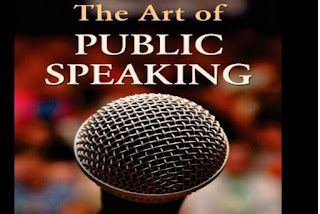Teaching Your Child to Take Responsibility for His Behavior
All children are bound to develop excuses for their behavior at one time or another. “It’s not my fault!” is a common reaction for kids when they’ve broken the rules. But for some kids, chronic excuses can become a real problem.
If your child says things like, “I had to hit her because she kicked me first,” or “It’s not my fault I forgot my homework. My teacher doesn’t give me enough time to get my books after school,” it’s important to address it proactively. Otherwise, your child will turn into an adult who refuses to accept personal responsibility for his actions.
Stay Calm
Avoid arguing with your child when he insists something isn’t your fault. Otherwise, you risk getting into a power struggle. Instead, respond calmly. Make it clear that his excuse for his behavior won’t mean he isn’t responsible.
Point out his excuse and remind him of his personal responsibility. Say, "You're in charge of how you behave," or, "It's up to you find ways to solve that problem."
Encourage Personal Responsibility
Teach your child the difference between an explanation and an excuse. For example, telling his teacher he was absent because he was legitimately sick is an explanation. Meanwhile, telling the teacher his dog ate his homework is an excuse.
An explanation accepts personal responsibility while an excuse tends to blame other people. An explanation is meant to help others understand the situation while an excuse is usually meant to justify a mistake.
Sometimes kids (as well as many adults) have difficulty recognizing the difference. But it’s worth the time and effort to help your child see that there is a big difference between blaming others and accepting personal responsibility.
Role play various scenarios and ask your child to identify when you’re making an excuse versus when you’re offering an explanation. With practice, your child can grow to recognize the difference.
Encourage your child to point out explanations and excuses when you're watching a movie or reading a book. As his understanding grows, he'll be better at recognizing when people are trying to avoid personal responsibility.
Teach Problem-Solving Skills
When your child tries to blame other people for his mistakes and problems, turn the focus back on his choices in how he responds. For example, if he says, “I got a bad grade on my project because the teacher didn’t explain how to do it,” ask, “What could you have done about that?” Talk about how he could have asked for clarification or sought out assistance, rather than blaming the teacher for his poor grade.
It’s important that your child is able to recognize that he has choices in how he responds. If his sister kicks him, he doesn’t have to hit her. Instead, he can ask for help, tell her to stop or leave the situation. Teach your child that no matter what goes on around him, he’s ultimately responsible for his own choices.
Emphasize Learning From Mistakes
Teach your child that mistakes are a learning opportunity. When kids view mistakes as a way to help them learn, they’re less likely to try and cover up their mistakes or blame other people. Show them that making mistakes isn’t bad, but it’s important to learn from those mistakes so they don’t get repeated.
Praise your child for telling the truth or taking responsibility for his behavior. When he says things like, “I wouldn’t have hit her if she didn’t make me mad,” gently remind him that no one made him do anything and that he chooses how he behaves. Then, when he’s calm talk about what he can do differently the next time.


Comments
Post a Comment